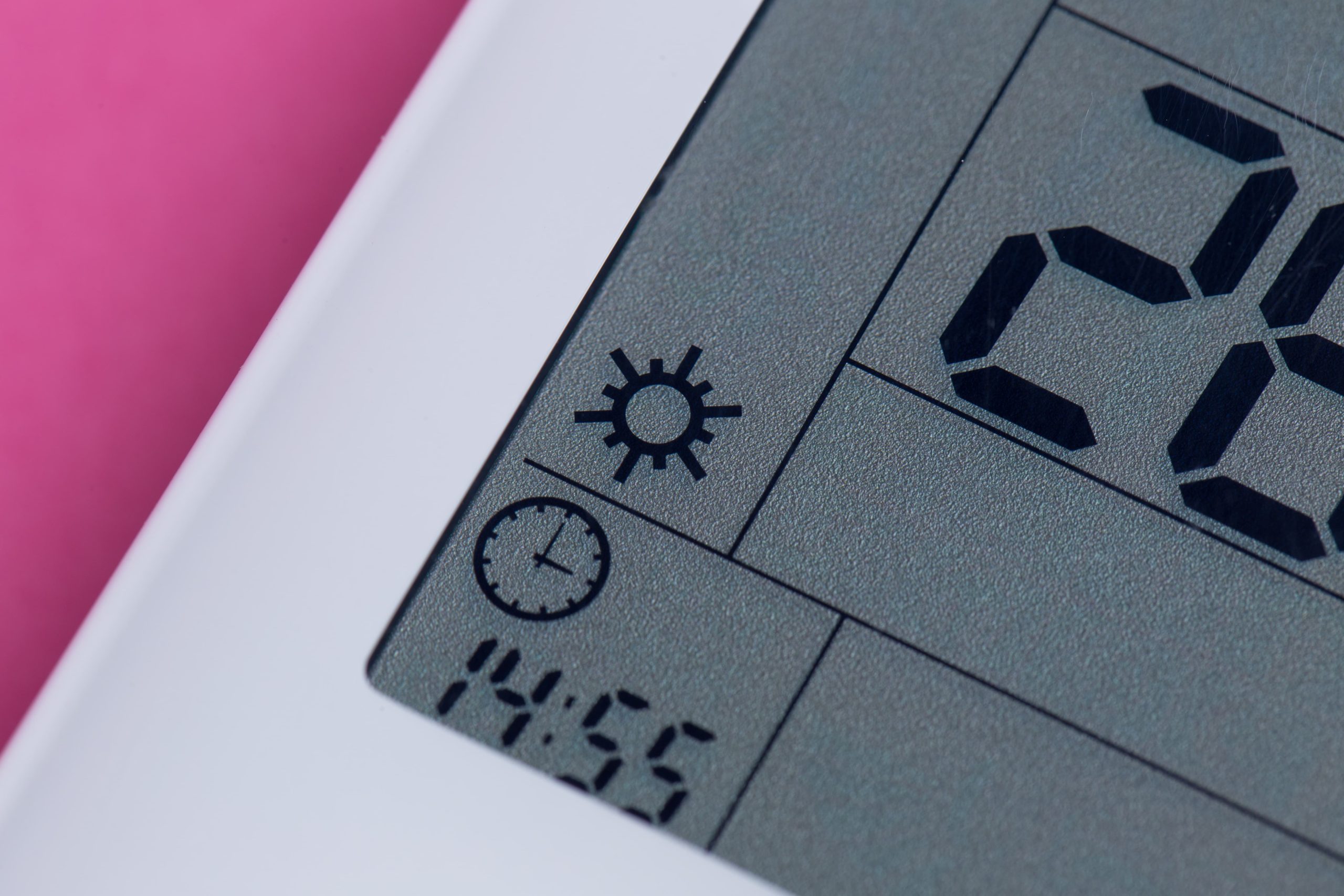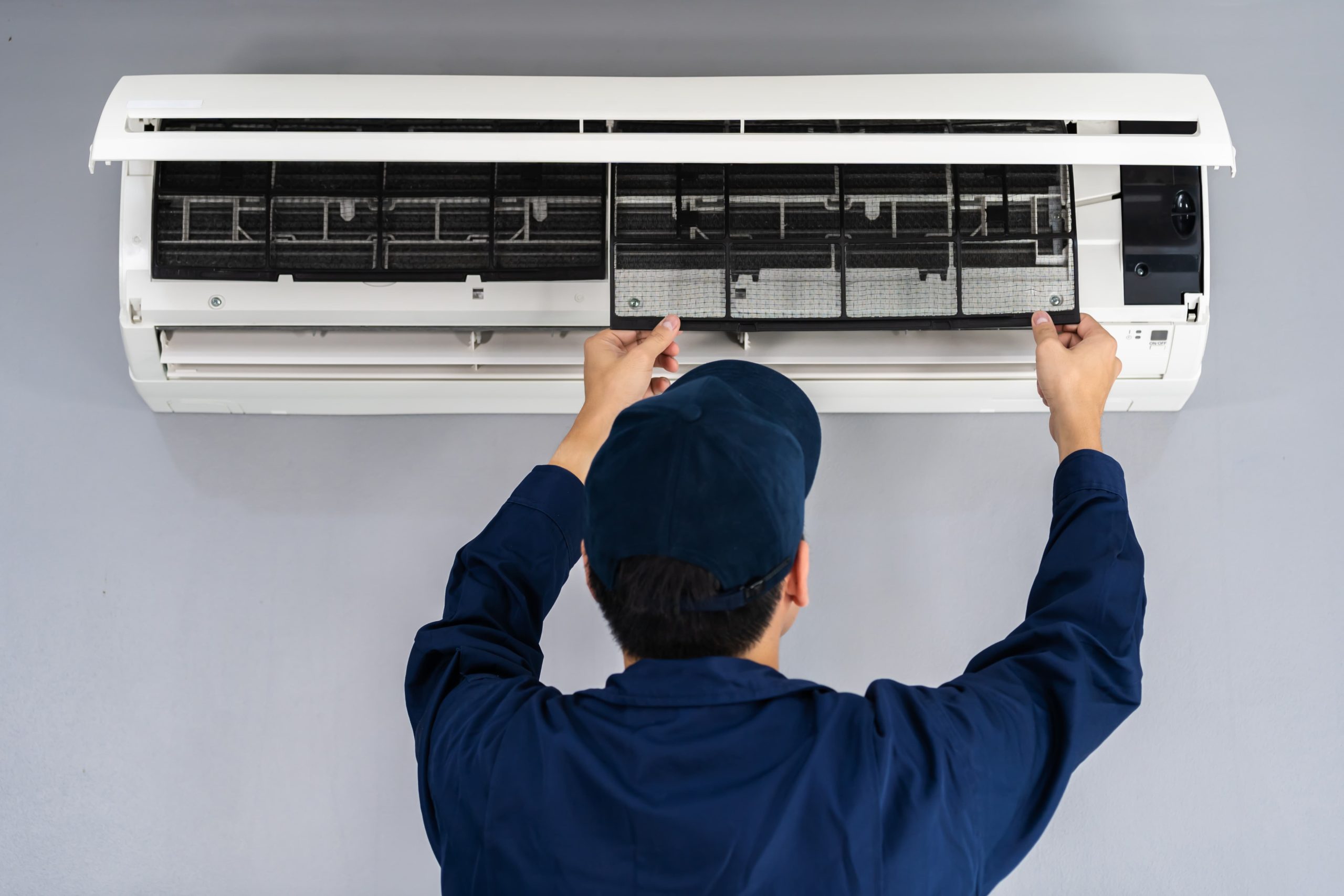How an HVAC System Works

A report from the Residential Energy Consumption Survey shows that 87% of households in the U.S. have an HVAC system, however, the majority of homes don’t know how an HVAC system works.
So if you’ve ever asked yourself, “how does an HVAC system work”, you’re not alone. As HVAC experts, we’ve put together this article to answer that question along with a few others on how everything related to HVAC works for your home.
If you have a standard air conditioner or you are considering replacing your AC unit, there are some essential things to learn about how these HVAC systems work, the operating expenses, energy effectiveness, cost, size, and upkeep.
With that being said, let’s take a look!
How Does an HVAC System Work
Your home’s HVAC system is made up of two units: a condenser unit that sits outside your home and an air handler, which is typically located in the attic, garage, or basement. The job of your home’s HVAC system is to maintain a comfortable temperature inside your home by cycling refrigerant between the two units.
In a few simple words, air conditioners utilize chemicals that can transform from a gas to a liquid and back again. This chemical is utilized to move heat from the air within a house to the outside and provide cool air for your home.
There are six main components to an air conditioner that we are going to talk about:
- The thermostat
- The furnace
- Evaporator coils
- The condensing unit
- Vents
- Refrigerant lines
These are going to be the first basic things to know about when talking about how an HVAC system works. Let’s look at each one.

The Thermostat
The thermostat is the brain behind the whole operation. It is what tells your air conditioner when to turn on as well as when to shut down. It will also control how cold or warm to make the air inside your home.
You can program it to fit your daily schedule so that you’re not cooling or heating an empty house. And if you have a newer model, you can even control it from your smartphone!
The Furnace
The furnace is actually a part of your HVAC system that you probably don’t use much in the summertime. It’s used more in the winter to heat up your home.
Evaporator Coils
When your thermostat is set to a lower temperature, the evaporator coils are utilized to chill the air. This chilly air is then distributed throughout your property via ductwork or vents.
The Condensing Unit
The condensing unit is located outside of your home and it pumps the refrigerant through the evaporator coils and back out again. When the refrigerant is cooled, the condensing unit will pump its liquid into the evaporator coils.
Vents
Vents help circulate the cooled or heated air throughout your house. You’ll find them in every room, usually on the ceiling or floor. These are going to be essential to spread the cool air throughout your home. Without them, only a single small area could be cooled down.
Refrigerant Lines
Lastly, we have the refrigerant lines. The refrigerant lines will carry refrigerant to the condensing unit which is in the form of a gas. That gas is then converted into a liquid. It is then transferred back to the evaporator coils.
These are your basic components and how an AC unit works. All of these must work together in order for cold air to be produced and distributed throughout your home. Now that you have the basic idea you can claim that you know how a home HVAC system works!
But let’s not stop there. There are a few more things you should know about HVAC systems.
HVAC Operating Expenses
Your HVAC system is going to have some operating expenses. These include the cost of electricity, which will be your highest bill most likely, the cost of AC or furnace repairs or replacement parts, and the cost of professional maintenance.

These are all important to take note of and financially plan for!
When talking about how much it costs to run an AC unit, you can expect to pay around $0.06 and $0.88 per hour. If you were to run an AC unit for 8 hours per day, that would equate to $14 a month on the lower end and $211 a month on the higher end. This all depends on the type of unit you have, where you live, and what kind of energy-saving features you take advantage of.
Energy Efficiency
The energy efficiency of an HVAC system is important because you want to make sure that your utility bills aren’t too high. You can save money in the long run by getting an HVAC system that has a higher energy efficiency rating.
What are SEER Ratings for an HVAC System
Central air conditioners are ranked on the basis of a Seasonal Energy Efficiency Ratio (SEER). The higher the number, the more efficient the unit is and the less it will cost to operate it.
Systems produced prior to 1992 typically had a SEER score of about 6. Standard AC systems in 2008, however, require that units have a SEER score of at least 10. If you are buying a brand-new traditional central air conditioning conditioner, you need to look for a SEER rating of 13 or even more, if possible, and the unit ought to offer the EnergyStar seal.
A number of these brand new AC units have added energy-saving features, such as:
- The capacity to run the fan without activating the ac unit
- A programmable thermostat
- Flexible fan rate controls
- High-efficiency gadgets
Choosing a main air conditioning system of the right size for your home is likewise crucial. Lots of homes today have oversized air conditioning systems. Getting the right size AC unit will save on both your initial investment and your continuous operating costs.
Heating and Cooling Suggestions for Energy Effectiveness
There are a number of things you can do to enhance the energy effectiveness of your air conditioning system. Below are a few efficiency and energy saving tips for your air conditioning:
1. Seal ducts in unused sections of the house
2. Set your thermostat at 78° F.
3. Change non-reusable filters on a monthly basis
4. Keep weeds and grass far from the compressor
5. Have the system professionally serviced every year
6. Turn the temperature level up or off throughout peak need hours of the day
7. Set up a programmable thermostat
8. Weatherize your home
With utility expenses going through the roof, it would be in your best interest to run your HVAC system as efficiently as possible. Of course, our professional staff here at Thomas Service Company is always available to provide you with answers to any of your questions.

HVAC Costs
The cost of an HVAC system can vary depending on the size, brand, and type of system that you get. You’ll want to consult with an HVAC professional to see what system would be best for your needs and home!
If you have questions about HVAC systems or need help choosing one, make sure to give our team a call or text. Our professional team is always here to help out our neighbors and provide the best customer service you’ll find in the HVAC industry.
Upkeep and HVAC Maintenance
As with any mechanical system, it is important to keep your HVAC system well-maintained in order to prolong its lifespan. We recommend having your system checked by a professional on a regular basis. Many companies offer monthly HVAC maintenance plans at an affordable price.
Benefits of Monthly HVAC Maintenace Plans
- Lowers utility bills
- Extends AC unit lifespan
- Fewer repairs will be needed
- Improved system reliability
- Increases its cooling capacity and efficiency
- Provides peace of mind
- Emergency repairs are more common in systems that have not had regular service
- You’ll get the most out of your AC system
Depending on the type of system you have, some components may need to be replaced and serviced more frequently, which is why monthly check-ups are the best way to ensure you are running effectively and efficiently.
Everything You Need to Know About HVAC
Now that you have a general understanding of how an HVAC system works, you can take some simple steps to increase the efficiency of your unit, save on your energy bills, and get the most out of your AC unit.
This blog has covered everything you need to know about HVAC basics, but if you have further questions, be sure to always consult an HVAC professional.
We also recommend consulting with a professional HVAC technician to find out what measures you can take to further improve the performance of your system and make sure it is running at its best all the time (especially during the hot summer months).
Thomas Service Company is here to help so please don’t hesitate to give us a call if you have any questions about maintaining or upgrading your home’s heating and cooling system!
